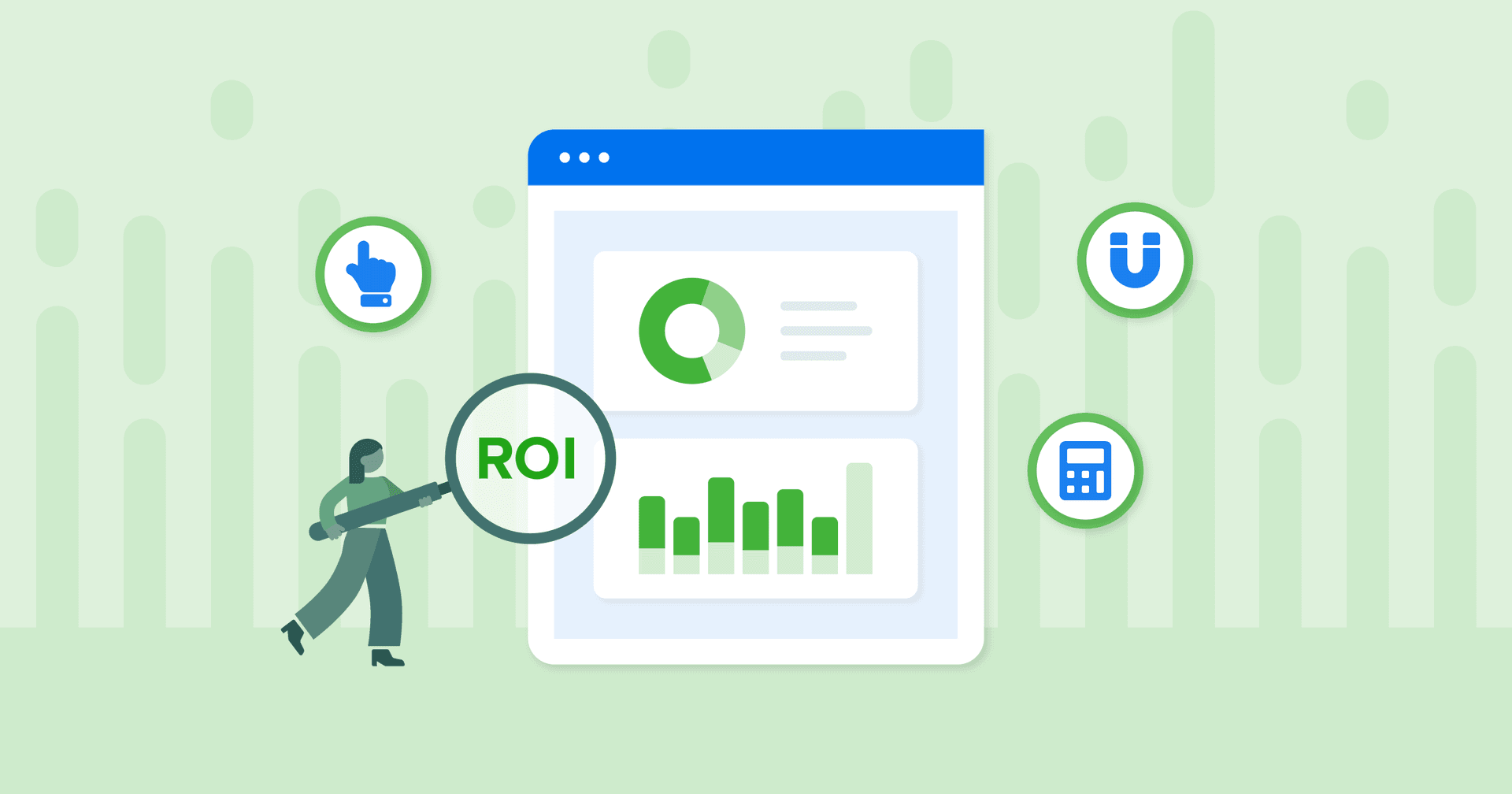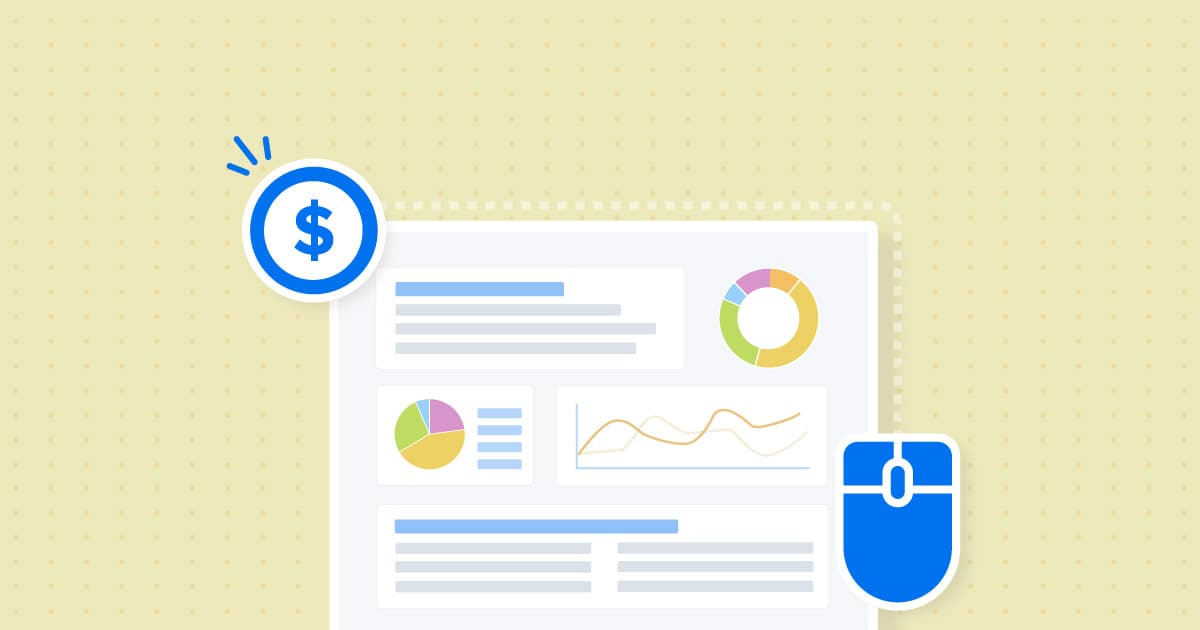Table of Contents
QUICK SUMMARY:
A PPC management checklist is a valuable tool to have in your back pocket for monitoring and optimizing pay-per-click campaigns. It guides agencies through key elements like budgeting, keyword research, and bidding strategies to improve ad performance and ROI. This checklist assists in maintaining balance in campaign management, ensuring effective oversight and necessary adjustments to achieve consistent results for clients.
So many PPC campaigns, so little time.
That’s how it feels when any PPC Manager opens their laptop on a Monday morning. There’s just so much involved. And if one PPC campaign isn’t enough, you’re juggling multiple online advertising efforts and priorities.
There are budgets, bidding strategies, keyword research… the list goes on. Even if you’ve crafted the perfect PPC strategy, it can all go downhill with the slightest change (like a new competitor or algorithm update).
So, what’s an agency to do? The answer is having the right PPC management strategy in your back pocket.
Whether you’re an experienced PPC agency or perfecting services, we’ll show you exactly what to monitor and when. That way, you’ll have a tried-and-true approach to PPC management and deliver successful results to clients.
9 PPC Metrics To Keep On Your Agency’s Radar
Effective PPC campaign management and paid search analytics is an ongoing process. To better understand what to monitor, here’s a short overview of top PPC metrics.
In the following sections, we’ll explain how to use these insights for your strategically-timed PPC checks.
Metric | Description |
|---|---|
The number of times a pay-per-click ad is displayed to users, which indicates campaign reach. | |
The percentage of times a PPC ad was shown out of the total eligible Impressions. It assesses how your client’s ads perform against competitors. | |
The percentage of Impressions that resulted in a click. This metric indicates ad relevance and overall appeal. | |
How much your client pays each time a user clicks on a PPC ad, which is a crucial part of cost management. | |
A score assigned by search engines based on the relevance of PPC ads, keywords, and landing pages. It impacts ad rank and cost. | |
Conversions | The number of desired actions completed by users, such as purchases or sign-ups. If your client has a conversion-oriented goal, this metric is a direct measure of PPC campaign success. |
The average cost incurred for each Conversion. CPC is an essential metric for understanding the cost-effectiveness of PPC campaigns. | |
Total Revenue | The total income generated from Conversions, which assesses how paid campaigns contribute to the bottom line. |
The revenue made for every dollar spent on PPC ads. In other words, ROAS measures the effectiveness of ad spend. |
How Often Should You Monitor PPC Campaign Performance?
While many PPC management platforms include automation, they still require a human eye for ongoing campaign optimization.
That said, you don’t want to go to extremes when monitoring PPC performance.
Keeping too close of an eye on daily performance isn’t ideal, especially for new ads that require time to exit the learning phase. Alternatively, “setting and forgetting” ads may lead to performance mishaps or budget overruns.
The pressing question remains–how often should your agency monitor PPC performance?
To stay one step ahead, monitor different PPC elements at different time intervals. To break this down further, let’s explore what to track daily, weekly, and monthly.
Daily PPC Management Checks
A daily PPC management check is ideal for quickly recognizing campaign hiccups and monitoring real-time performance.
Daily ebbs and flows aren’t necessarily reasons to make dramatic campaign changes, though. Instead, it’s about keeping a watchful eye and addressing any glaring issues. It’s this day-to-day approach that will set the stage for long-term success.
Here's what to monitor daily to add structure to your PPC management strategy.
Budget Distribution
To avoid overspending or underutilizing your client's ad spend, keep a daily eye on how their budget is pacing.
Take a PPC management platform like Google Ads. You’ll have the option to set a daily budget, which may fluctuate slightly to remain competitive and maximize visibility. However, there may be instances where the daily budget is simply too low and can’t compete with other advertiser bids.
Sooner or later, your client may end up with lackluster PPC performance and even doubts about your agency’s credibility. That’s why a daily budget check is necessary for any PPC campaign.
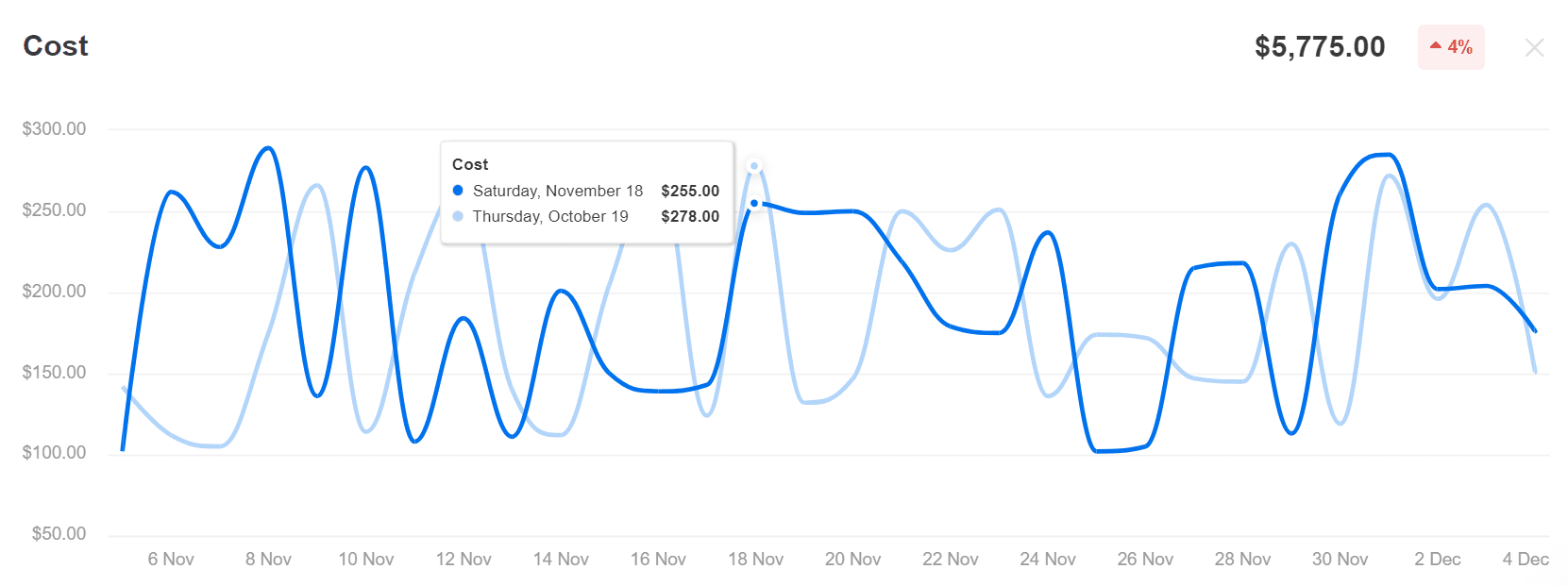
Monitor PPC spend across ad groups and campaigns in a few clicks. Adopt a strategic approach to PPC management–save time with AgencyAnalytics; it’s free for 14 days.
Additionally, monitoring daily ad spend is handy for the following scenarios:
Your client uses a shared budget strategy. This means their daily budget is automatically distributed across multiple ads in a given set (and not always equally). If an ad is consistently underperforming, it’s an opportunity to rework or remove it so it doesn’t waste money.
Your client has a time-sensitive campaign requiring a consistent daily spend for maximum traction (e.g., a new restaurant launch with limited online reservations).
Your client wants to maintain a specific daily Cost per Click (CPC) to keep within a tight budget.
Your client has campaigns across multiple PPC management platforms and wants to maximize their budget (e.g., investing in better-performing Facebook Ads vs. Google Ads).
The ability to see which marketing channels are performing well or verify analytics from PPC campaigns is important. It gives customers the information they need when allocating their marketing budget.
Ryon Gross, CEO, Local Leap Marketing
Visibility and Engagement
Your clients run PPC ads for different reasons. Some might focus on enhancing brand awareness, while others aim to increase website traffic or generate leads. Regardless of the case, their ads must have sufficient visibility to reach target audiences.
That’s why it’s essential to monitor some metrics daily, such as:
Impressions. Use this metric to decide whether there are enough eyes on a client’s ads. Demographics also matter here, so check whether they’re being displayed to the intended audience.
Impression Share. Because this metric assesses how many Impressions your client’s ads get compared to competitors, it gives you a better idea of their position in the market. A low Impression Share means further adjustments are needed to stand out (e.g., targeting a different audience).
Click-through Rates (CTRs): Visibility is one thing, but users must be enticed to engage with your client’s ads. For example, a high number of Impressions and a low number of CTRs should prompt a review of ad copy and messaging.
System Notifications
As part of your daily PPC sweep, check for any in-platform notifications. This ensures you don’t miss any important issues affecting your client’s ad delivery.
Examples of in-platform system notifications include:
Ad disapprovals (e.g., Facebook Ads may flag a post that promotes a questionable supplement).
Billing issues, such as an expired credit card.
User-specific recommendations to improve performance. For instance, Microsoft Advertising (formerly Bing Ads) may suggest negative keywords or alternative ad copy for more refined targeting.
Weekly PPC Management Checks
A weekly PPC check-in gives some campaign elements enough time to optimize and produce more reliable results.
It’s also a chance to identify potential trends that could affect long-term PPC performance–here’s what to watch.
Competitive Analysis
Things change pretty quickly on the PPC side of town. Competitors may revamp their bidding strategies, introduce offers, or focus on new target keywords.
Regardless of the case, your agency must be on the lookout for significant changes. It’s the only way to ensure your clients’ ads remain relevant and click-worthy.
The ad auction is ever-changing, with costs and performance driven by competitor bidding behavior. That’s why it’s important to do a competitor analysis regularly–even if it’s just once a week. This way, you can anticipate any drops in performance and react before they have a negative impact. For instance, if you see sudden increases in average CPC or Impression Share drops, put some strategies to combat these before they take hold!
Claire Aldridge, Digital Marketing Specialist, Victory Digital
To help your clients stay one step ahead, here are some competitor insights to check weekly.
Competitor Insight | Importance |
|---|---|
Keyword Research | Monitor the specific keywords your client’s competitors are ranking for. Use this to understand the broader landscape, uncover new keyword ideas, and explore unused but relevant terms. |
Creative Trends | Examine competitor ad copy to understand their target audience, get inspiration, and refine your client’s market positioning. It’s also an opportunity to develop a distinct creative edge. |
New Competitors | Use weekly checks to identify any emerging competitors and analyze their ads. Develop a unique selling point that differentiates your client’s product or service if needed. |
Untapped Opportunities | Assess whether competitors are addressing all customer pain points. If not, tweak your client’s ads to include emotive messaging that resonates with target audiences. |
Key Learnings | Keep an open, observant mindset when tracking competitor PPC ad campaigns. See how their strategies play out and use these lessons to optimize your client’s ads. |
Conversions
Weekly checks are ideal for clients with conversion-oriented goals such as new leads, form signups, or online sales.
Think about it–potential new customers may click on a pay-per-click ad but won’t necessarily follow through on an immediate action. Plus, conversions may only happen after repeated ad exposure.
For long-term PPC campaigns, daily conversion monitoring often leads to premature, knee-jerk reactions–all because of normal fluctuations. Alternatively, monthly conversion monitoring delays the identification of significant trends (e.g., high CTRs with low conversion rates, which suggests a landing page issue).
Therefore, weekly checks strike a balance between being adaptable and maintaining PPC campaign stability. To streamline weekly conversion tracking, use a real-time PPC dashboard and look out for any anomalies.
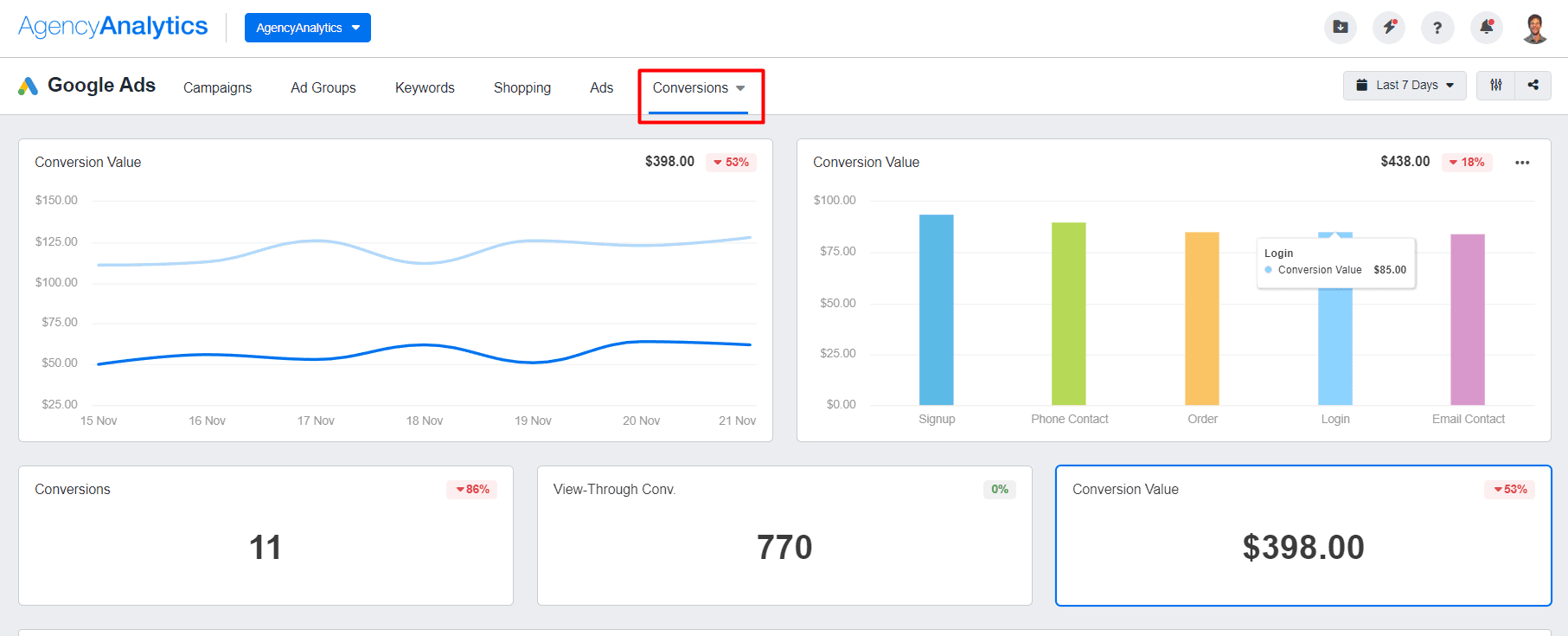
Take a proactive approach to PPC management. Identify potential issues before they affect long-term performance. Invest in PPC management software today–try AgencyAnalytics, free for 14 days.
If you notice a concerning conversion rate trend:
Improve landing page performance. This includes:
Optimizing page load time.
Adding more strategically placed CTAs.
Cutting down on length (e.g., removing irrelevant copy).
Try an alternative bidding strategy (e.g., maximizing your client’s ad budget for Conversions instead of Impressions).
Run A/B testing for ad copy variations. Remember to use targeted, action-oriented messaging and remove irrelevant keywords. For example, use a CTA like “Purchase XYZ Designer Shoes Now–Limited Time Offer” instead of “We’ve got everything you need and so much more!”
Quality Score
To ensure your client’s ads remain relevant to user search queries, assess Quality Score every week. This metric is particularly important since a high Quality Score leads to better ad positions on search engines.
Ranking aside, Quality Score directly affects how your client’s budget is spent. A higher Quality Score generally leads to a lower Cost per Click (CPC) and Cost per Conversion. In other words, this means more Clicks and Conversions for your client’s budget.
If you notice a low or decreasing Quality Score on any given week:
Revisit your client’s keyword strategy. It may mean infusing more user-relevant terms that encourage clicks.
Improve your client’s ad copy and landing page (using the steps we outlined previously).
Monthly PPC Management Checks
After a month, you’ll have more information to create solid conclusions and present PPC marketing recommendations.
Here’s precisely what you should assess each month for optimal results.
Keyword Analysis
To ensure your client’s PPC strategy stays relevant, run a keyword analysis. This monthly exercise will uncover:
Which keywords and terms are performing well. Use this information to reallocate or redistribute your client’s PPC budget if needed.
Any new keywords or phrases to capitalize on. Use a tool like Google Keyword Planner for more insights.
Whether there are overlooked negative keywords to exclude from your client’s online advertising efforts.
Trends in Impressions, CTRs, and CPCs for specific keywords.
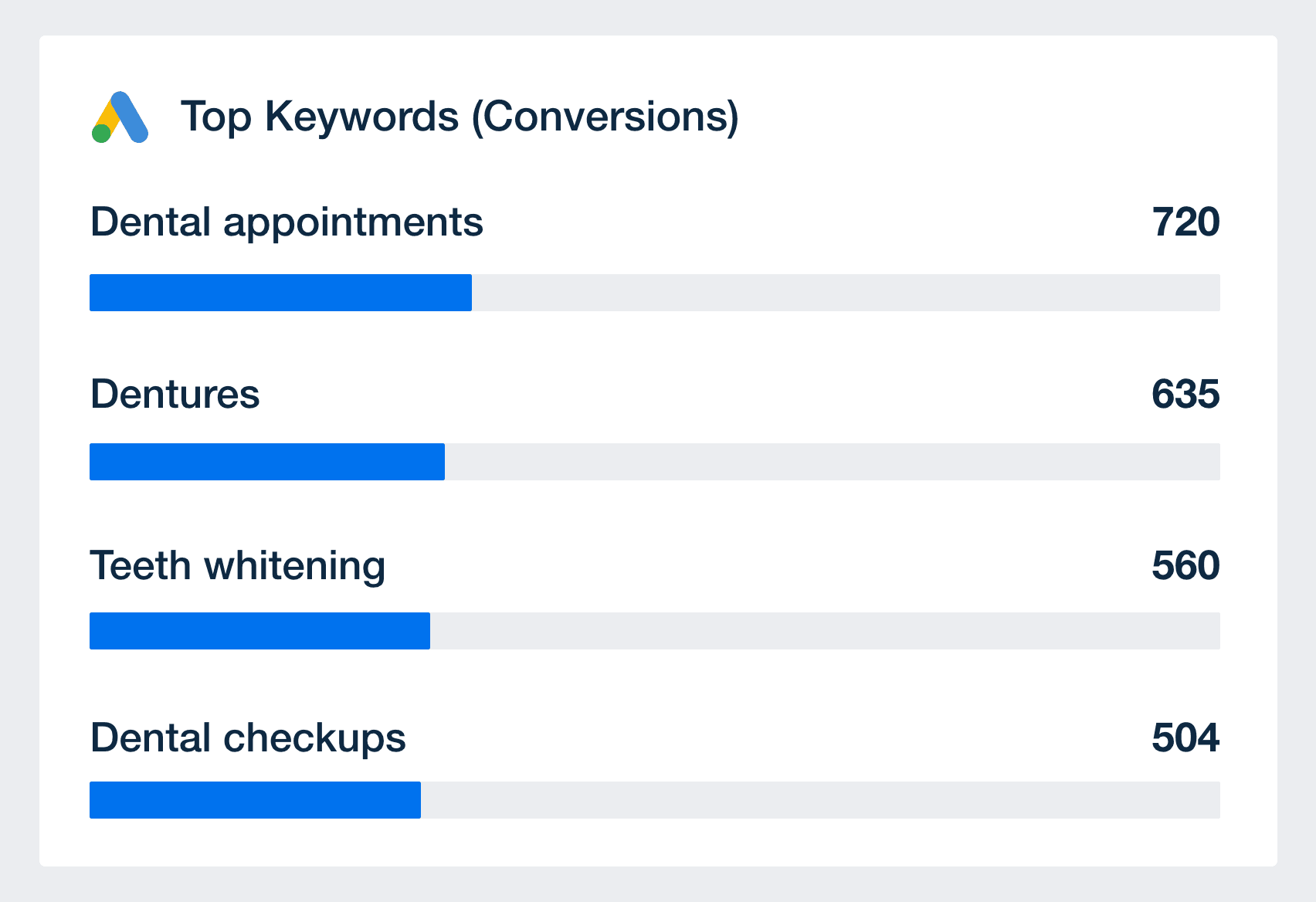
Seamlessly integrate keyword research into your agency’s PPC management process. Identify keywords that move the needle and optimize existing ads–it’s all possible with AgencyAnalytics, free for 14 days.
Total Budget Spent
A monthly budget review ensures that your client’s PPC spend aligns with overall goals. It provides a clear record of how funds were used, which is essential for earning trust.
If your clients don’t achieve their desired results because of a low monthly ad spend, it’s an opportunity to justify budget increase recommendations.
Our clients care about their budget and how many leads they can get. If the client has a low close rate, the number of phone calls needed to turn a lead into a client is higher. To accommodate this goal, an increase in budget is required. We look for trends within 30, 60, and 90 days to determine the right budget for the client for steady leads and revenue.
Rebecca Pena, Marketing Director, Investigator Marketing
Additionally, present actionable ways for your clients to save money (e.g., scrapping marginally performing ad groups).
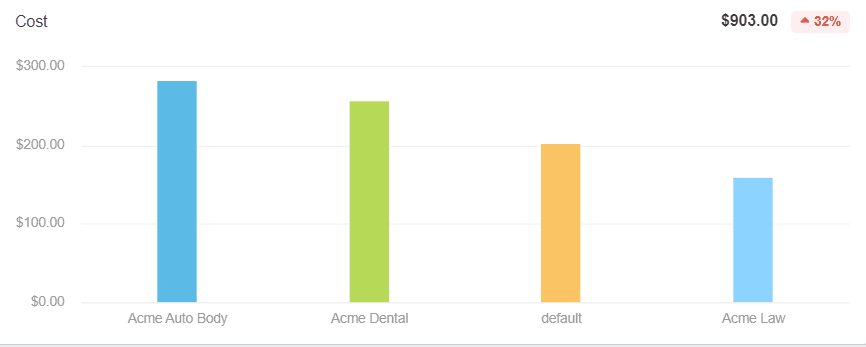
Effective PPC management means looking at dollars and cents. Monitor the cost of PPC efforts on a macro and ad group level–sign up for a free 14-day trial of AgencyAnalytics today.
Revenue Generated
If your client has a PPC goal directly tied to the bottom line (e.g., qualified lead generation, online sales), then revenue will be a top priority each month.
Showing the relationship between PPC campaigns and revenue helps clients to make data-driven decisions. If their paid advertising yields great results, it encourages them to keep investing in your agency’s services.
Remember that the right infrastructure must be set up beforehand (e.g., site tags for conversion tracking). Once it’s in place, send a monthly PPC report to:
Show the revenue generated across multiple paid advertising platforms.
Present easy-to-understand data visualizations for conversion tracking and money made.
Make informed recommendations about the top revenue-generating campaigns.
Return on Ad Spend (ROAS)
To prove the effectiveness of your client’s PPC campaigns, report on Return on Ad Spend (ROAS) per month.
A strong ROAS is a clear indication that the budget was used effectively. It helps clients feel more confident in their investment and your agency’s capabilities.
We leverage campaign data to identify opportunities and monitor return on investment. Once we have collected enough data, we set a target Return on Ad Spend (ROAS) and adjust this accordingly. With this approach, there is no limit to a PPC budget as long as the target ROAS can be maintained.
Tim Husband, Co-founder, Blue Flamingo Solutions
To put this into context, imagine you’re running a PPC management company. At the end of the month, a client’s Google Ads campaign generated $6 in revenue for every $1 spent, which indicates a strong customer response.
Alternatively, their Facebook Ads campaign brought in just $2 for every $1 spent. Based on this, you advise them to focus on Google Ads for better returns and maintain an organic presence on Facebook.
Enhance Your Agency’s PPC Management Strategy
Successful PPC management involves a balanced, multi-faceted approach.
It's not about obsessing over every detail or leaving campaigns to operate autonomously. The key is to maintain ongoing, attentive oversight while making necessary changes as they arise. This approach ensures that campaigns remain constantly optimized but stable enough to generate long-term traction.
After you’ve run PPC ads, it’s time to deliver results to your clients. Ultimately, they’ll have the final say about budget decisions or other changes.
It's always the client's decision to make. So many factors can influence budgets that are outside of our view, such as cash flow. We always present the case for increasing budgets to the client and why. Our clients trust us as the PPC expert, but we ultimately leave the decision to them.
Greg Miles, Founder, Bumbl
To show why your agency’s PPC services are worth investing in, use a tool like AgencyAnalytics to simplify complex insights. In a few clicks:
Build a custom PPC dashboard or use a pre-built template.
Automatically schedule and send a visually appealing, professional PPC report for greater time efficiency.
Integrate insights from popular PPC platforms into dashboards and reports.
Create an efficient process that helps your agency to scale and get more PPC clients.
Managing ads doesn’t have to be a headache for your PPC manager or in-house advertising team. Streamline your agency’s PPC management and deliver successful campaigns–explore AgencyAnalytics today, free for 14 days.

Written by
Faryal Khan is a multidisciplinary creative with 10+ years of experience in marketing and communications. Drawing on her background in statistics and psychology, she fuses storytelling with data to craft narratives that both inform and inspire.
Read more posts by Faryal KhanSee how 7,000+ marketing agencies help clients win
Free 14-day trial. No credit card required.



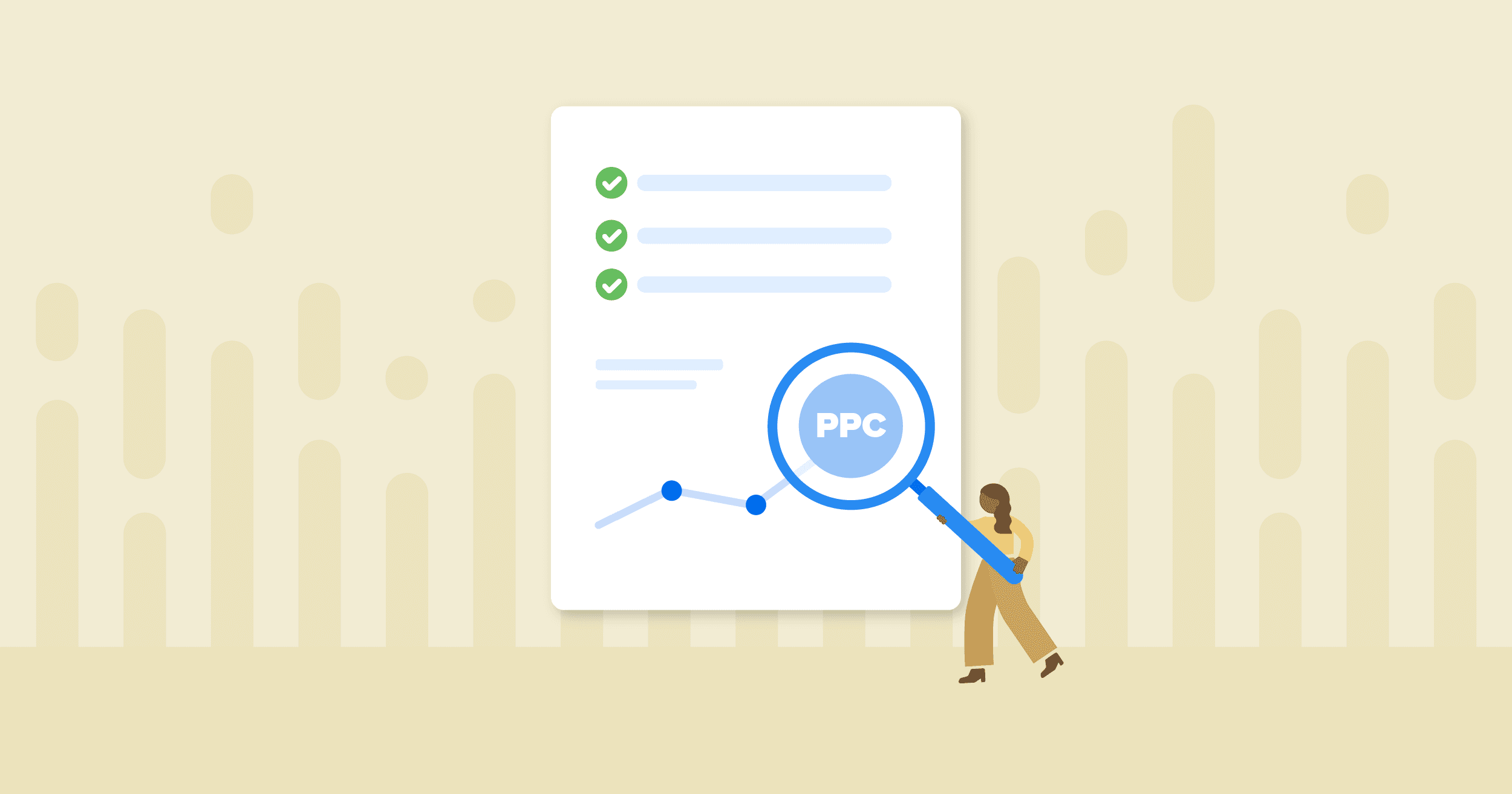
![The Ultimate Google Ads Optimization Checklist [Guide & Tips] An Easy to Follow Guide to Google Ads Optimization + a Downloadable Checklist](/_next/image?url=https%3A%2F%2Fimages.ctfassets.net%2Fdfcvkz6j859j%2F1RGRDTvZOx2bH3PCJMjDsD%2Fc239f0aed512ea0e761f3713dd6e59ac%2FGuide-to-Google-Ads-Optimization-Checklist.png&w=1920&q=75)
